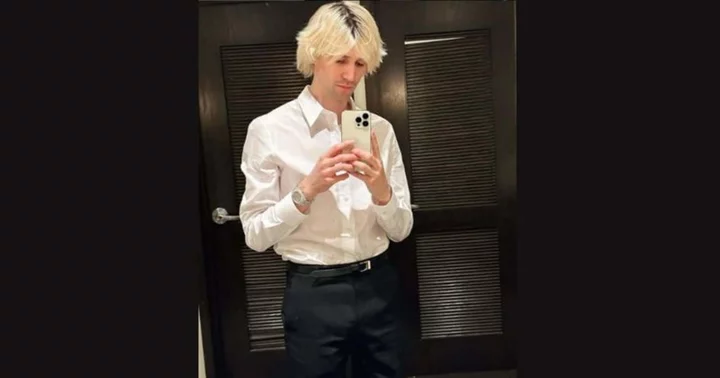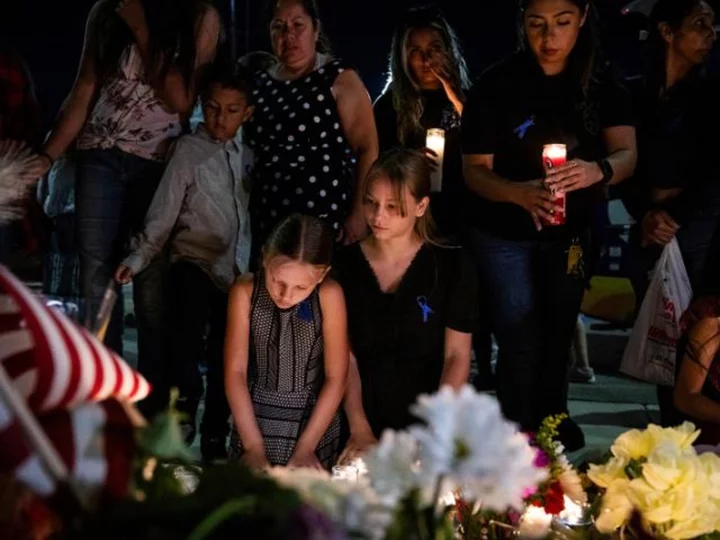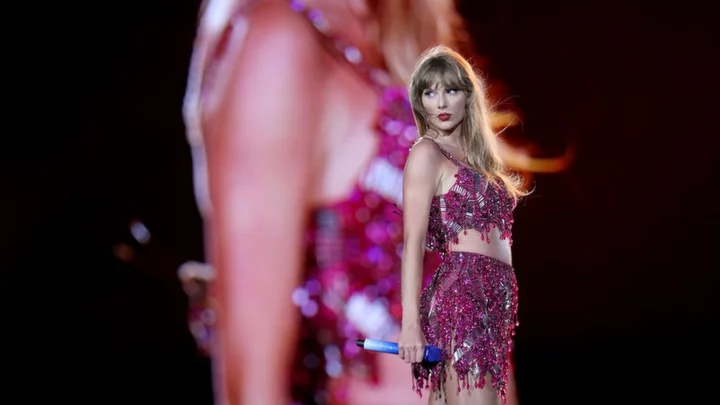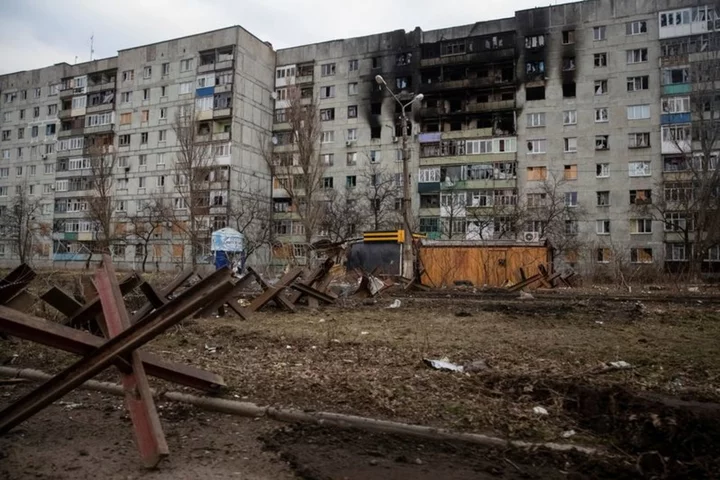Two Nobel winners staged a rare denunciation of Russia's offensive in Ukraine in a Moscow courtroom Wednesday, as public dissent over the conflict has been all but silenced by a wave of arrests.
Oleg Orlov, the co-chair of Nobel Prize-winning group Memorial, again denounced the Kremlin's military campaign during his trial in which he is accused of "discrediting" the Russian army.
His friend and fellow Nobel laureate Dmitry Muranov, the editor of Russia's Novaya Gazeta newspaper who joined Orlov's defence team, stood by him.
Prosecutors have requested a 250,000-ruble (2,400-euro) fine for 70-year-old Orlov over an anti-war op-ed warning about "fascism" in Russia.
"The main theme was how the war affects our country and destroys the future of our country," Orlov told the court in a trembling voice.
"As a citizen of Russia, I believe the actions of the armed forces in Ukraine contradict Russia's interests," he said.
"I am being tried just because I exercised my rights. This is a political trial."
Muratov argued against the case made by prosecutors, who had brought in World War II veterans earlier in the trial to state how offended they were by Orlov's words.
"The Second World War was for our land. The Afghan war and the special military operation are for somebody else's," he said, using the official term used in Russia to refer to the Ukraine offensive.
- 'No choice' -
The charges against Orlov can carry up to five years in prison.
The requested fine is a rare lighter form of punishment for speaking out against Moscow's offensive. Russians who voice dissent often get prison sentences.
Prosecutors said they had decided to ask for a lighter sentence than they could have due to Orlov's age and health.
But Orlov argued: "Many of my like-minded people were punished very cruelly: many years of imprisonment for words, for a peaceful protest, for the truth."
He cited as examples opposition politician Vladimir Kara-Murza, serving 25 years in Siberia on treason charges, and artist Alexandra Skochilenko, in prison for having swapped supermarket tags with anti-war messages.
The court is due to issue its verdict later on Wednesday.
Orlov said he did not regret staying in Russia after the Kremlin launched the offensive, which sent much of the rights community abroad
"This is my country and I thought that from Russia my voice would be the loudest," he said.
He said that his decades experience of campaigning for human rights had left him "no other choice" but to also protest the Ukrainian offensive, despite huge risks.
- No regrets -
The dissident said he did not regret staging one-man protests in central Moscow shortly after Putin launched the offensive in February 2022.
At the trial, prosecutors had asked that Orlov go through a psychiatric analysis, reminiscent of the Soviet-era practice of sending dissidents to psychiatric wards.
The judge rejected the request.
"The prosecution is relying on the criminal practice of this (Soviet) time," Orlov said. "Punitive psychiatry."
Orlov is among a generation of Russian rights activists who remember Soviet repression well.
A trained biologist, he joined Memorial in its early days in the late 1980s.
Memorial established itself as a key pillar in civil society by preserving the memory of victims of communist repression and campaigning against rights violations.
The case against Orlov was opened earlier this year after a series of raids on the homes of Memorial activists by security officials.
The organisation was officially disbanded by Russian authorities in late 2021, just months before Russian President Vladimir Putin sent troops to Ukraine.
The charges against Orlov are among the array of legislation that the Kremlin has used to prosecute critics of its campaign in Ukraine after an outburst of protests in the early days of the conflict.
Thousands of Russians have been detained, jailed or fined for opposing the conflict.
bur/jj









